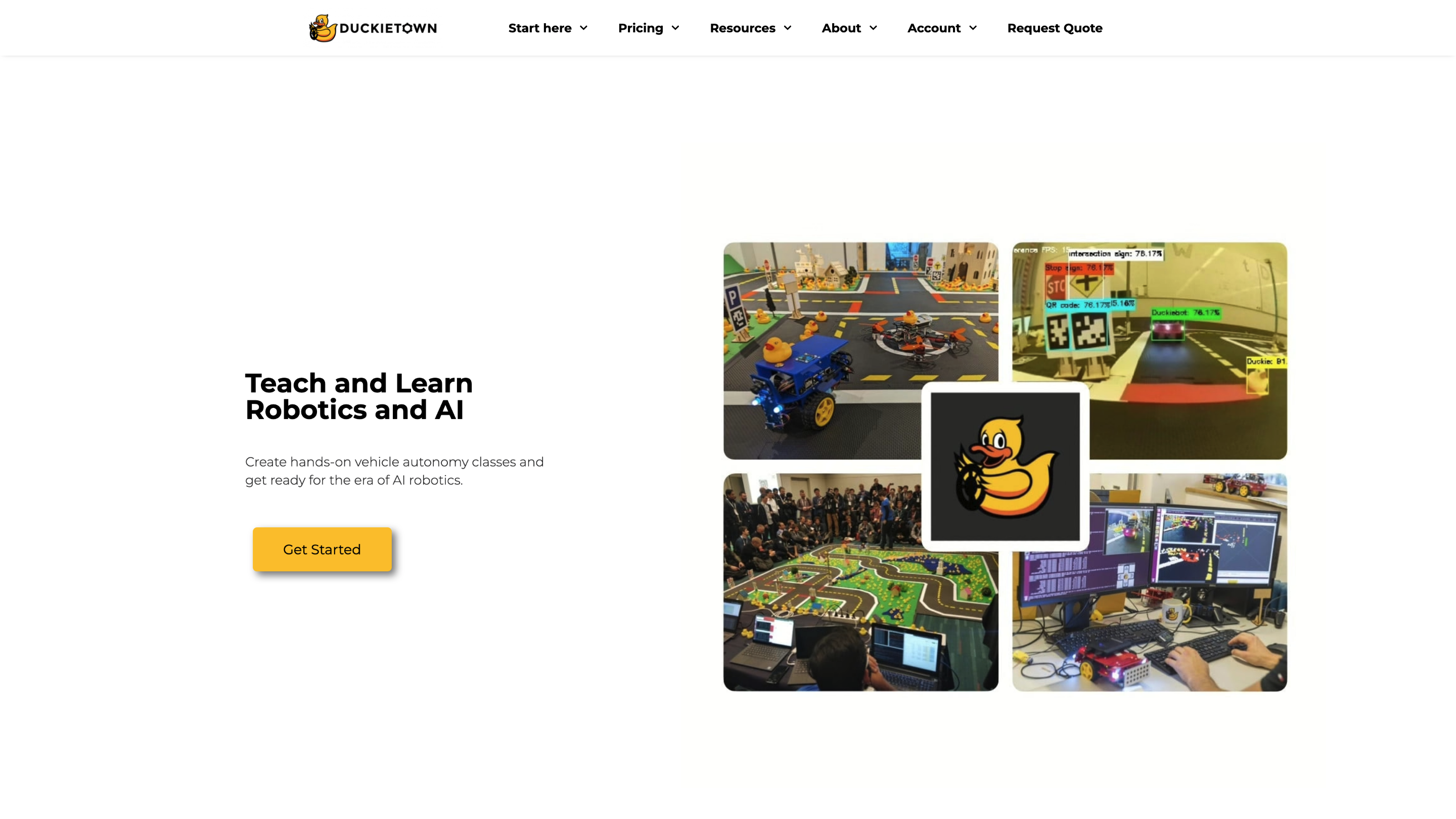Duckietown
Open siteEducation & Translation
Introduction
Democratizing access to robotics and AI learning
Duckietown Product Information
Duckietown: Learning robotics and AI like the professionals is a comprehensive learning ecosystem designed to teach vehicle autonomy, robotics, and artificial intelligence through hands-on, low-cost hardware and rich educational resources. Originating from MIT and expanded globally, Duckietown provides an end-to-end setup for instructors, students, researchers, and professional learners to build, program, and test autonomous systems in a safe, scalable environment.
Overview
- A world-renowned education platform for robotics and AI that combines hands-on hardware (Duckiebots, Duckiedrones, and Duckietowns) with lecture materials, simulations, and open documentation.
- Aimed at making advanced autonomy education accessible beyond elite institutions, enabling learners to build real robots, follow lectures, and engage with a global community.
- Used for teaching, learning, and research, with a thriving ecosystem that bridges theory and practical application.
Who is it for?
- Instructors and educators seeking streamlined teaching resources for robotics and AI.
- Students and self-learners aiming to gain practical skills in robot autonomy and embodied AI.
- Researchers exploring mobile robotics, embodied AI, and reproducible experimentation.
- Organizations and professionals looking for hands-on training and scalable curricula.
How it works
- Hardware platform: Low-cost Duckiebots (autonomous small robots) built from off-the-shelf parts, plus optional Duckiedrones and simulated environments.
- Environment: Duckietowns—mini urban layouts with roads and signage to navigate—the real-world analogue of a smart city for autonomy testing.
- Software & development: Open resources, tutorials, and a software stack for perception, control, and planning, designed for education and research.
- Education ecosystem: Interactive lectures, rich documentation, simulations, and dedicated technical support to bridge theory with practice.
Use cases and impact
- Classroom courses and hands-on labs for teaching robot autonomy and AI concepts.
- Research platforms for reproducible experiments in mobile robotics and embodied AI.
- Professional training and continuing education in autonomous systems.
Safety and accessibility
- Emphasizes approachable, low-cost hardware to enable broad participation.
- Resources designed to be accessible to non-elite institutions while maintaining rigorous coverage of autonomy concepts.
Core Features
- Low-cost, off-the-shelf hardware (Duckiebots) for hands-on robotics learning
- End-to-end learning ecosystem: hardware, software, lectures, simulations, and documentation
- Global community with teaching resources, classroom-ready materials, and research tools
- Scalable setup for classrooms, labs, and research groups
- Focus on autonomous vehicle autonomy, perception, control, and AI in a tangible, embodied context
- Historical lineage from MIT CSAIL-based origins to a worldwide educational initiative
